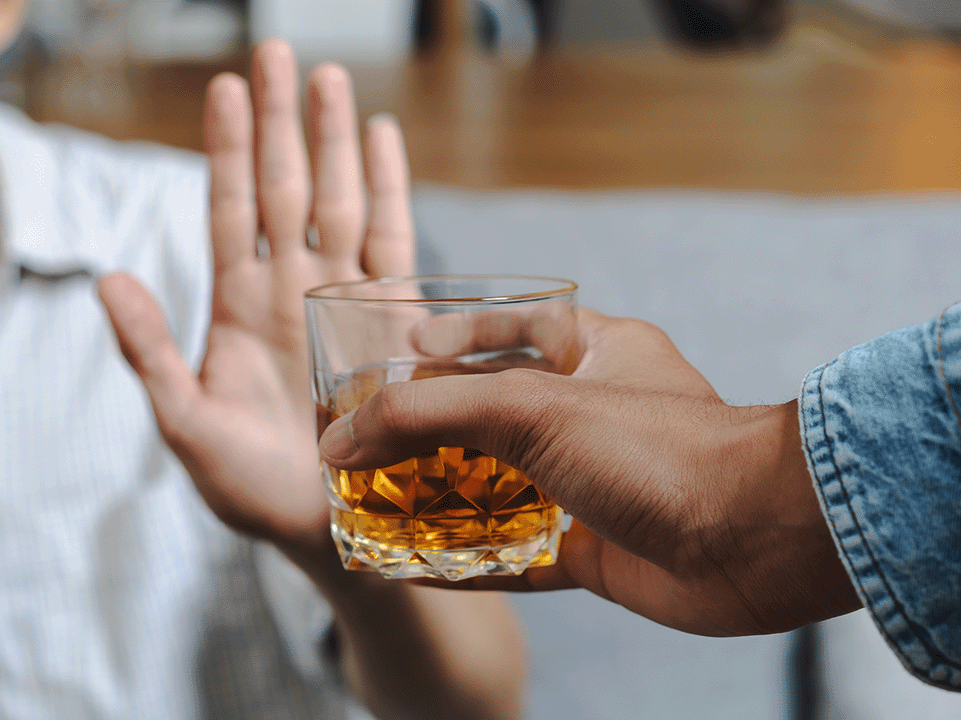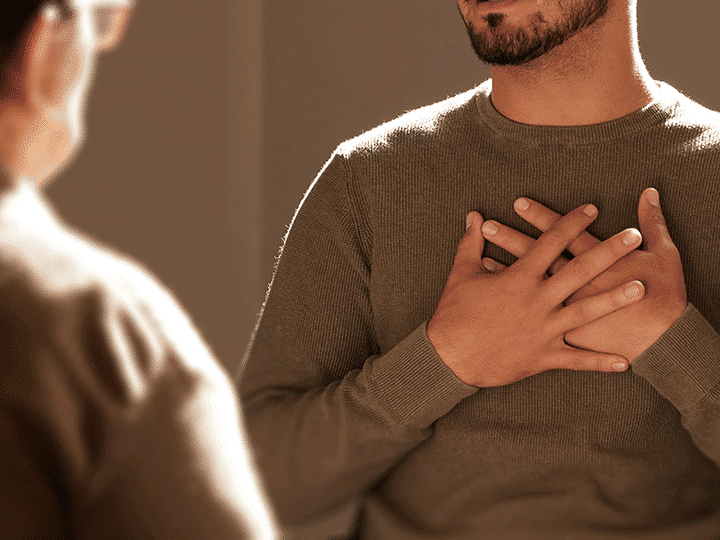There are very few things that can hasten this process. Despite many myths about ways to sober up faster, it just takes time to sober up.
How Long Does It Actually Take to Sober Up?

A person’s blood alcohol content (BAC) falls by about 0.015 percent every hour. Exactly how much alcohol this represents depends on the individual, but it will generally mean one standard drink is processed by the body roughly every one to two hours.
Are you or someone you know struggling with addiction?
I may have a problem I am concerned for a loved oneAssuming a person is only considered sober when their body has processed all the alcohol in their system, the exact time it takes to “sober up” will mostly depend on how much alcohol a person has consumed. If you want to assure you are sober before engaging in an activity where intoxication may make it unsafe or illegal, a window of at least two hours per standard drink is recommended, with a longer window being safer.
Key Facts About Sobering Up
The standard definition of “one drink” depends on the type of beverage you consume and its average alcohol content. A standard drink is generally about a 12-ounce beer, 1.5 ounces of liquor, or 5 ounces of standard wine.
Cisgender women tend be affected by alcohol more than cisgender men for a variety of biological reasons, although alcohol can affect everyone differently.
It’s important to understand that the “legal” BAC limit to perform an activity is not necessarily the safe limit, with most activities getting significantly more dangerous with even a relatively small amount of alcohol in your system.
Caffeine cannot sober you up, but it may mask some effects of alcohol, possibly making you drink more than you intend.
How Long Does It Take to Get Sober Enough to Drive?
A BAC of 0.08 percent is usually the legal limit for driving and operating similar heavy machinery. Most people will have reached this level with three to four drinks, although it’s critical to note that many people will reach this level with even just two drinks.
You should wait at least one hour per drink before driving. You should never drive if you still feel like your motor skills or judgment are impaired.
Understanding BAC Levels
A blood alcohol content (BAC) percent is the ratio of alcohol to blood in a person’s body. This means that, for example, a person at the standard legal limit of a BAC of 0.08 percent has 99.92 percent blood flowing through their veins and 0.08 percent alcohol. While this may seem small, it doesn’t take a particularly high concentration of alcohol in the blood to cause serious effects.
Different concentrations of alcohol tend to affect people in the following ways:
| BAC of 0.02–0.03 percent | The individual will experience few notable changes besides a potential temporary lift in their mood. |
| BAC of 0.05–0.06 percent | The individual may feel warm and will likely experience significant mood changes, feeling more relaxed and having their emotions somewhat exaggerated. Their motor skills and judgment will begin to be compromised, and they will be more inclined to make bad decisions about alcohol use. |
| BAC of 0.07–0.09 percent: | The individual will begin to experience a notable decline in their motor skills and their ability to think clearly, potentially struggling with balance and complex thought. They may be overly confident and have trouble recognizing their impairment, even if it’s obvious to those around them. |
| BAC of 0.08 percent | This is the legal BAC limit in many areas for activities such as driving, where physical and mental impairment makes some activities almost universally unsafe. |
| BAC of 0.11–0.15 percent | The individual will be majorly mentally and physically impaired. They will be slurring their words, have difficulty seeing clearly, and may potentially need medical attention. |
| BAC of 0.2–0.3 percent | The individual will have very poor or no motor control and be severely confused. They likely require medical attention and may be suffering from alcohol poisoning. |
| BAC of 0.3+ percent | The individual is likely comatose and requires medical attention. They may be experiencing life-threatening alcohol poisoning. |
How Long Does Alcohol Stay in Your System?
The length of time alcohol use can be detected through testing varies depending on the method used. While the exact detection period will depend on the amount of alcohol consumed, rough detection windows are as follows:
Blood test
Alcohol use can be detected several hours to multiple weeks after use, depending on the specific test.
Urine test
Some alcohol use can be detected for up to 5 days, though the ideal detection window is within 24 to 80 hours of alcohol consumption.
Breathalyzer
This detects a person’s approximate current BAC.
Hair & fingernail tests
These tests can potentially detect high-level alcohol consumption from 3 to 6 months prior.
Factors That Impact Your Blood Alcohol Level
A few factors that can impact your blood alcohol level include the following:
- The amount of alcohol you consumed
- Your weight
- Your biology, especially biological sex
- The amount of food you’ve been eating


Find the Best Alcohol Detox Near You
Myths About Sobering Up
There’s really no proven way to “sober up” beyond waiting. Intoxication occurs because the alcohol has already been absorbed into your blood. There’s no good way to leech it out or otherwise counteract that effect except to wait for your body to process it.
These are some common myths about sobering up faster:
- Caffeine: Coffee and other caffeinated beverages can mask some of the effects of alcohol, but they cannot sober you up or make it safe to perform risky activities like driving while intoxicated. Caffeine also generally wears off before alcohol.
- Eating: Eating cannot sober you up. While food can slow down how quickly you absorb alcohol, it doesn’t have any significant effect on the alcohol you’ve already consumed. With that said, eating is a good idea if you’re drinking, especially if you think you’ve had more to drink than you intended and want to reduce the peak level of intoxication you’re likely to reach.
- Activated charcoal: Some people also try to take activated charcoal to sober up, which doesn’t work for reasons similar to food. Activated charcoal can also make you feel nauseous and even increase your risk of aspiration and lung injury. While it may absorb some of the alcohol still in your stomach, it isn’t going to draw alcohol out of your blood, so it won’t be any significant help in sobering up.
- Cold shower: A cold shower does not help a person to sober up faster. It can be very dangerous to put a very intoxicated individual in the shower or any water, as drowning is possible. Particularly cold water can also lead to hypothermia, and the shock of very cold water can lead to loss of consciousness.
What Actually Helps You Sober Up?
The truth is that only time and stopping your alcohol intake help you sober up. Time allows your body to process the alcohol already in your system, slowly lowering your BAC back to normal.
Continued alcohol consumption is going to further raise your BAC, so you need to be taking in less alcohol than your body is processing if you want to sober up. This means it is best to simply stop drinking if you need to get sober.
Be wary of any “get sober fast” tips online, as these are not backed by evidence.
How to Tell if You Have a Drinking Problem
At a very basic level, a person has a drinking problem if they repeatedly engage in unhealthy drinking behaviors. If your alcohol use is having a negative impact on your life but you continue to drink anyway, that’s a problem. It means you need to talk to a professional about how to reduce your drinking.
While not everyone who could be considered to have a drinking problem is necessarily addicted to alcohol, many are. An alcohol addiction, formally known as alcohol use disorder (AUD), occurs when a person is unable to limit or stop drinking despite many negative effects of drinking.
If you believe you might have an addiction, talk to a mental health professional about your symptoms to see if you qualify for a diagnosis. If you have AUD, professional treatment is needed. You will be very unlikely to stop drinking on your own, and if you’ve been drinking at high levels for a while, it can be dangerous to attempt to stop drinking without medical supervision.
If you or someone you care about is struggling with alcohol abuse or alcoholism, we’re here to provide support. Our certified counselors and medical professionals are ready to help guide you toward recovery and lasting wellness. Contact us today or explore our treatment centers to take the first step toward a healthier, alcohol-free future.
Treatment Options for Alcohol Addiction & Binge Drinking
If you have problems with alcohol, check out the National Institute on Drug Abuse’s Rethinking Drinking resources, which provide a number of tools to help you learn how to stop drinking alcohol and get the help you need.
Alcohol addiction treatment often begins with medical detox, where you undergo acute withdrawal with the help of medical professionals who can keep you safe and as comfortable as reasonably possible. Since alcohol withdrawal can be potentially life-threatening in some cases, medical detox is always recommended. Professionals can keep you safe during detox and reduce the likelihood of relapse, ensuring you make it through withdrawal without returning to alcohol use.
You may be prescribed medication to curb your drinking and reduce your alcohol cravings. This is accompanied by therapy and counseling to identify what draws you to drink alcohol and develop tools to better avoid alcohol use. In treatment, you’ll also build a support network that helps you to deal with drinking triggers and remain in recovery.
- Alcohol and Your Body. UC Santa Cruz.
- Blood Alcohol Content. University of Toledo.
- Thinking About a Change? National Institute on Drug Abuse.
- Treatment Approaches for Drug Addiction. (January 2019). National Institute on Drug Abuse.
- Understanding Alcohol Use Disorder. (April 2021). National Institute on Alcohol Abuse and Alcoholism.
- Comparison of Ethyl Glucuronide in Hair With Self-Reported Alcohol Consumption. (May–June 2012). Alcohol and Alcoholism.
- Alcohol Drinking and Blood Alcohol Concentration Revisited. (December 2017). Alcoholism: Clinical and Experimental Research.
- Comparison of Breath- and Blood-Alcohol Concentrations in a Controlled Drinking Study. (July 2022). Journal of Analytical Toxicology.











